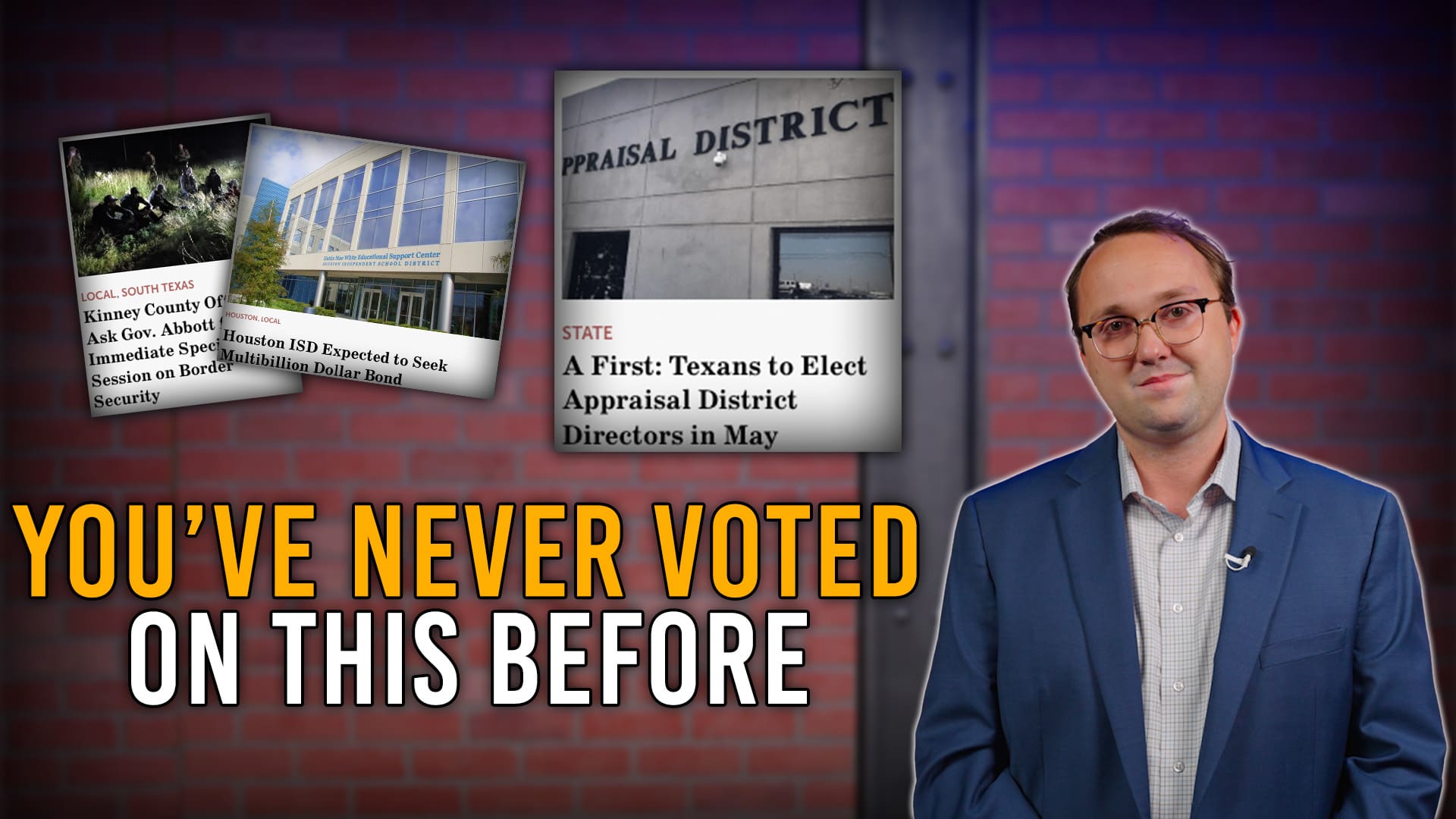Kassi Marks was introduced to civic engagement at the age of five, when her father ran for school board in their small town of Carrizo Springs, Texas. As part of his campaign, he worked to educate local taxpayers on the risks associated with a proposed bond package for a new high school, an effort that angered the status quo.
Residents were being misled as to the true cost of approving new debt, says Marks, including its long-term interest expense, lofty growth projections and problems with the construction site. “My father pointed out these facts,” Marks recalled. “Unfortunately, the truth was not popular. My father lost his race, but everything he said came to pass and the same problems exist to this day.”
Decades later, Texas law still does not require that the debt-related interest expense and its effect on local property taxes be disclosed to voters on the ballot. Despite the Texas Comptroller’s recommendations for ballot transparency reform, state legislators have largely ignored the problem.
As a constitutional conservative, fiscal issues are important to Marks. But she’s primarily focused on the pro-life movement in Texas and its foundational importance to the liberty movement. “Without the right to life,” Marks emphasized, “nothing else matters.” But the pro-life movement isn’t just about protecting the young—it’s also about protecting the elderly.
“I am particularly concerned with end of life or denial of care issues, which broadly comes under the Texas Advance Directive Act (TADA). Last session I testified against SB 303 to try and defeat it.” Conservatives in Texas were split on the issue, in part because the bill contained troubling provisions that others in the pro-life community had allegedly overlooked.
Marks noted, “So many well-meaning pro-lifers have been led astray on what the true pro-life position is. It’s not the place of a doctor or hospital to refuse care for a patient when refusing that care will result in death and is against the family’s wishes. We shouldn’t starve sick and ill patients to death because a doctor or hospital has decided their life is not worth living. And yet, it happens.”
Marks and other critics of the system point out that a doctor should have the ability to refuse treatment, but the family should be able to transfer the patient to another facility. Currently, an “ethics board” at the hospital unilaterally determines the fate of patients. The process lacks a legal remedy for families, effectively denying patients due process.
Marks provided a contrast; “An individual convicted of murder has more rights and appeals than an ill patient in a hospital … that’s just plain wrong.”
Texas Right to Life (TxRTL) has been one of the strongest advocates for TADA reform and patient protection. Although Marks doesn’t formally affiliate with any organization, she applauds TxRTL for communicating with the public and legislators on the issue. She’s also grateful that beyond education and advocacy, they actually assist families with loved ones facing the denial of treatment.
“Seeing first hand what families are dealing with was literally life-changing for me. How a family is treated, how the patient is discussed, the attitudes … it really reaffirmed my conviction that this law is wrong and must be changed and that supporting any version of this system is simply not pro-life.”
Marks has lived in the Dallas, Texas area for nearly seventeen years. She and her husband have three children ages thirteen, nine and two—all are homeschooled. Professionally, Marks works as an attorney, focusing on legal research, writing and consulting on cases from her home.
In her free time, Marks enjoys gluten free baking and cooking, walking outdoors, and reading. She volunteers as a judge at her oldest son’s speech and debate competitions.
“I am encouraged by what I see in these young people…their futures are bright,” Marks says. “Too often the focus is on sports…but I think we need to nurture and encourage academic and intellectual pursuits to the same degree as athletics.”
As a passionate advocate, Marks carries with her the lessons she learned from her father’s modest school board campaign from decades ago. She was inspired by his integrity in telling his community the truth, even when doing so wasn’t popular.
“Everything about [my father’s race] made an impression on me—telling the truth is not always popular, but it’s necessary…you do it even if it means you might lose an election. If you don’t have integrity and truth, you have nothing.”
[gravityform id=”34″ name=”Citizen Profile Nominations” title=”false” description=”false”]




